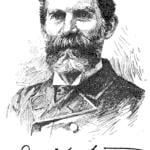Recently I read on a blog comment that Hebrews/Israelites didn't have abstract terms because the Hebrew mind doesn't think that way. The commenter has not pondered Job or Ecclesiastes or such great terms as glory or justice or righteousness or salvation in the Hebrew Bible. This notion was put aside decades ago and needs to go the way of the dodo bird. But it's not just reading blogs that perks my attention about words, it's also reading books and how some make much of a word in a way that befuddles those of us who have serious training in such things as "word studies" and concordances and word searches, not to mention deep familiarity with Kittel's famous NT word dictionary, or Botterweck-Ringgren's OT word dictionary, or Spicq's brilliant three volume NT greek word lexicon. A publisher sent me a book, and I won't mention the publisher or the author, and I was excited to read the book because it was on a topic that has my full attention these days. The first chapter was flat-out wrong both on the meaning of a word and how to discern meanings of words, and the point of the chp was to correct everyone on that word's meaning. In the book I found four or five transliterated Greek or Hebrew words that were so badly misspelled that what was given was not just a typo but a word that doesn't even exist. I won't go any further. Instead, I want to offer some wisdom about words: Read more
















